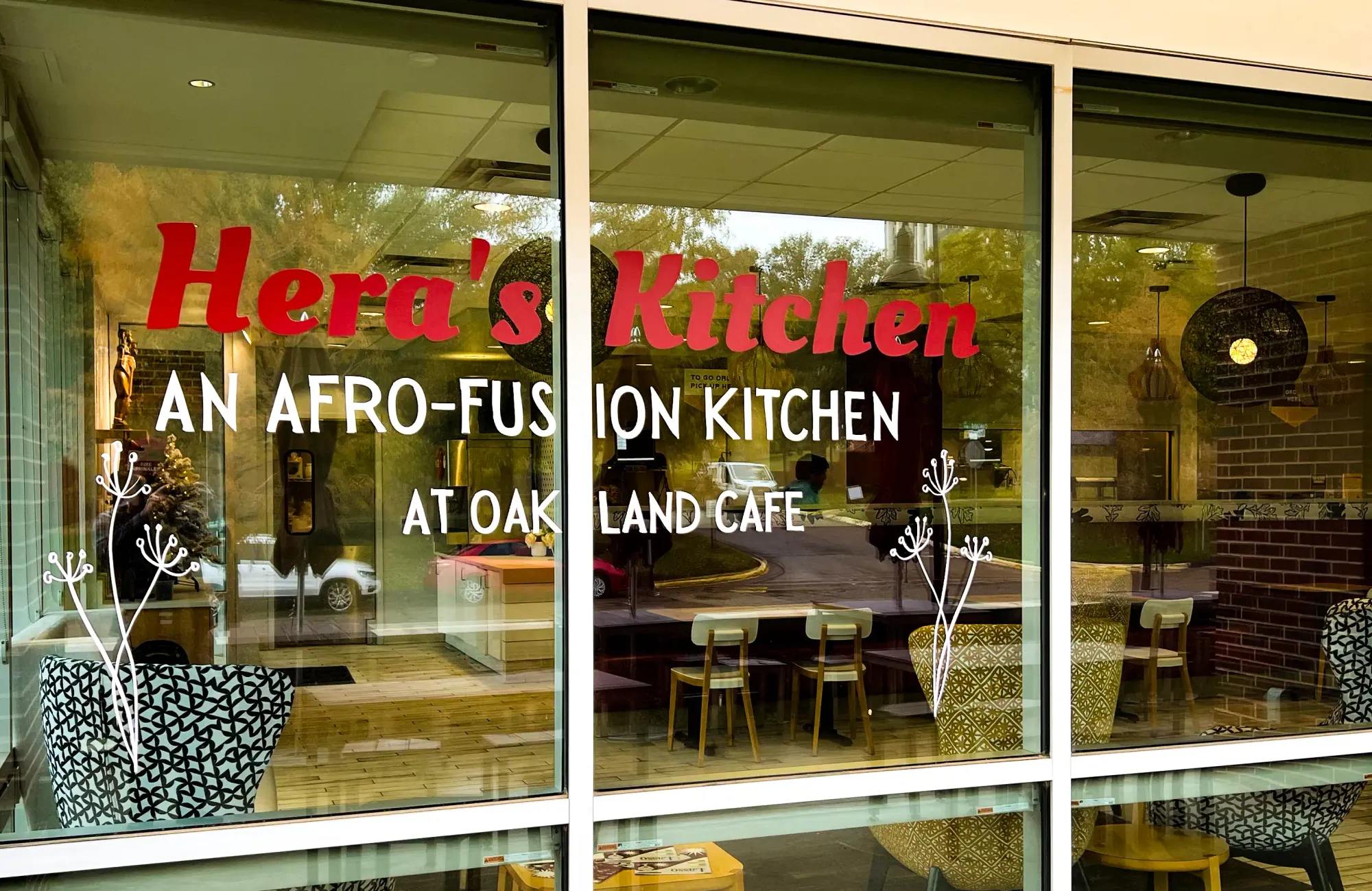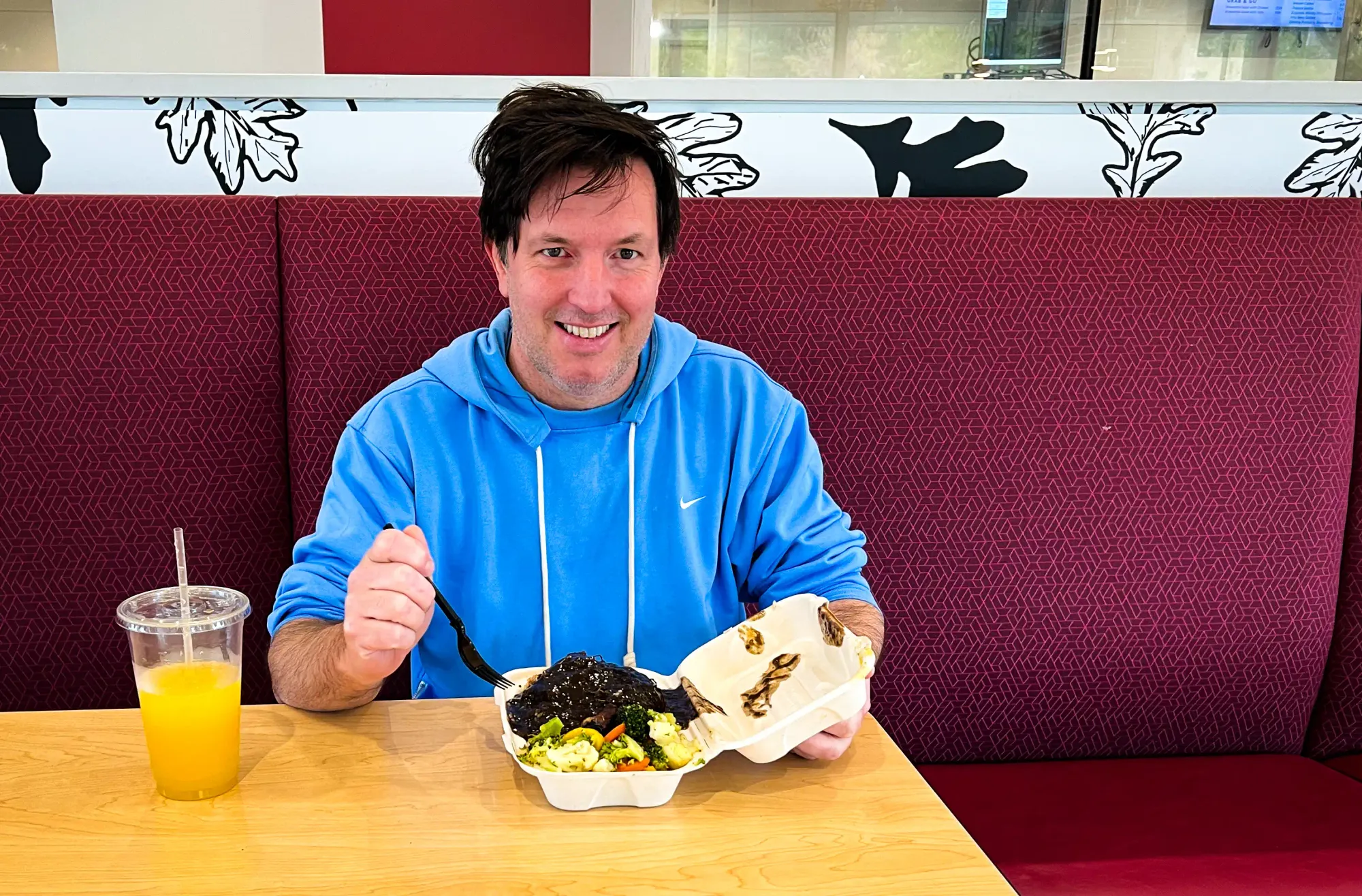Denton’s African Queen

By Rob Curran
I knew I was going to like Hera’s Kitchen as soon as I met the queen of this particular Olympus, chef and co-owner Mikaela Lawrence, a woman who brims with bonhomie.
While I was in line, Mikaela greeted a return customer by name, and fussed over the young man like a long-lost aunt.
Mikaela first opened her restaurant, named for her daughter Hera, in the Texas Woman’s University Student Union concourse in 2022. At the new location on Oakland Street, still in the heart of TWU campus, there’s ample parking, making the student favorite an ideal lunch spot for anyone in the downtown area.
“So whereabouts in Africa are we?” I asked.
“Today, Nigeria,” she beamed. I ordered the special, Mikaela’s play on Rice Jollof.
Every eating experience is shaped, in large measure, by the host. There’s a reason they call it the “hospitality industry.” And hospitality in Africa, of course, glows hotter than almost everywhere else on earth, much like the African sun. I experienced this last year in Mali. Mali is the most fractious West African nation, a place riven by war and violence for more than a generation. Yet the people of Mali are so friendly that they do not have a concept of stranger. They call out to passersby in the street, trying to guess surnames and make a connection. When my friends and I arrived at a sandy-floored, corrugated-iron roofed dive bar, the locals gave up their seats on the legless plastic lawn chairs, and argued over who would buy our drinks, drinks that they could surely ill afford. The dignified generosity of the extremely poor, the Irish travel writer Dervla Murphy called it, when she was feted by her hosts on the dreaded borders of Pakistan and Afghanistan during the 1960s. Entering a source’s house in the early afternoon, I was ushered into their private chambers. Not only did the family insist I join them for their early dinner, they insisted we all eat from the same silver platter. The other thing I learned in that household was that freshness is everything in African cuisine.

Mikaela strives to replicate this freshness in the processed wastelands of suburban Texas by sourcing food from farmers. Jollof Rice, which has versions from Senegal, Ghana or Nigeria, often features a white fish lying on a bed of flavored rice. Usually, tilapia leaves me cold; most of the time, store-bought tilapia is an anonymous white fish, as if mass-produced by Walmart in some vast aquatic warehouse in Hurst. Mikaela's tilapia had more chunkiness and flavor to it, while retaining the smooth lightness that must have made it so popular in the first place. The tilapia had come all the way from a fish farm in Baton Rouge, La., and I was very glad it had made the journey.
Mikaela coated her tilapia in a delicious red sauce, a kind of fish stew, and just enough of it seeped through the crisp skin. Stews are an integral part of West African cuisine; the sauces combine the comfort value of a British or Irish stew with the spice of an Indian curry. The bed of rice was feathery as a regal four-poster.
The multitude of flavours in the sauce certainly evoked Nigeria, one of the most bustling places on earth. Lagos rush hour is like the Grand Canyon of traffic jams.
I washed down the meal with freshly squeezed mango juice. Ah, the mango! The king of tropical fruit. Bananas for travel sickness but mangos for flavor. One of my Irish friends traipsed around Central America with a surf-board and a hammock for a few months, and lived on mangoes picked from his hammock.
There is no doubt that Mikaela has created her own corner of Africa on TWU campus. Hasten there at your earliest available opportunity; hasten all your friends there; and as Mikaela reminded me in her charming way once I had revealed my links to the 'Plate: "Don't forget to mention the parking!"

